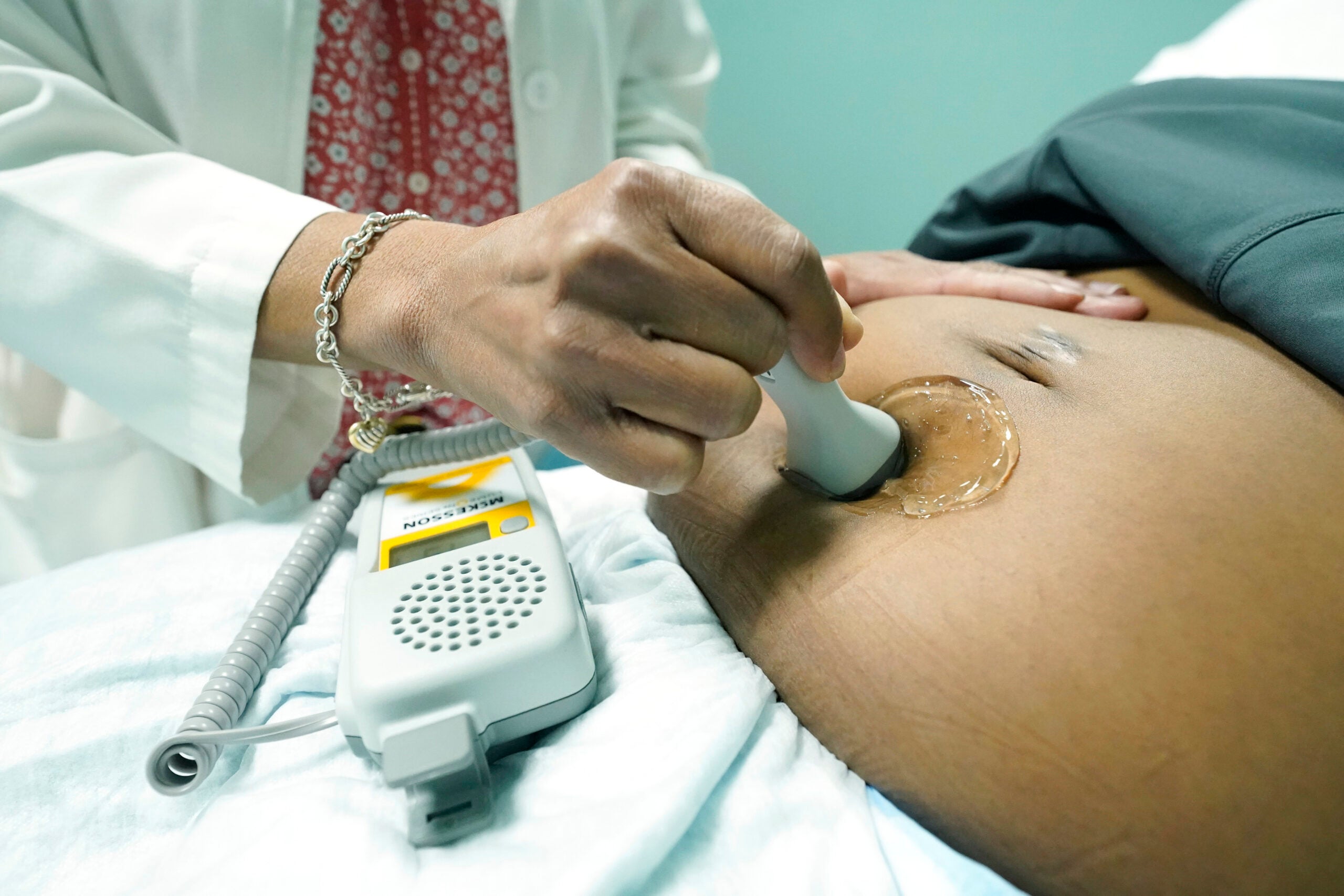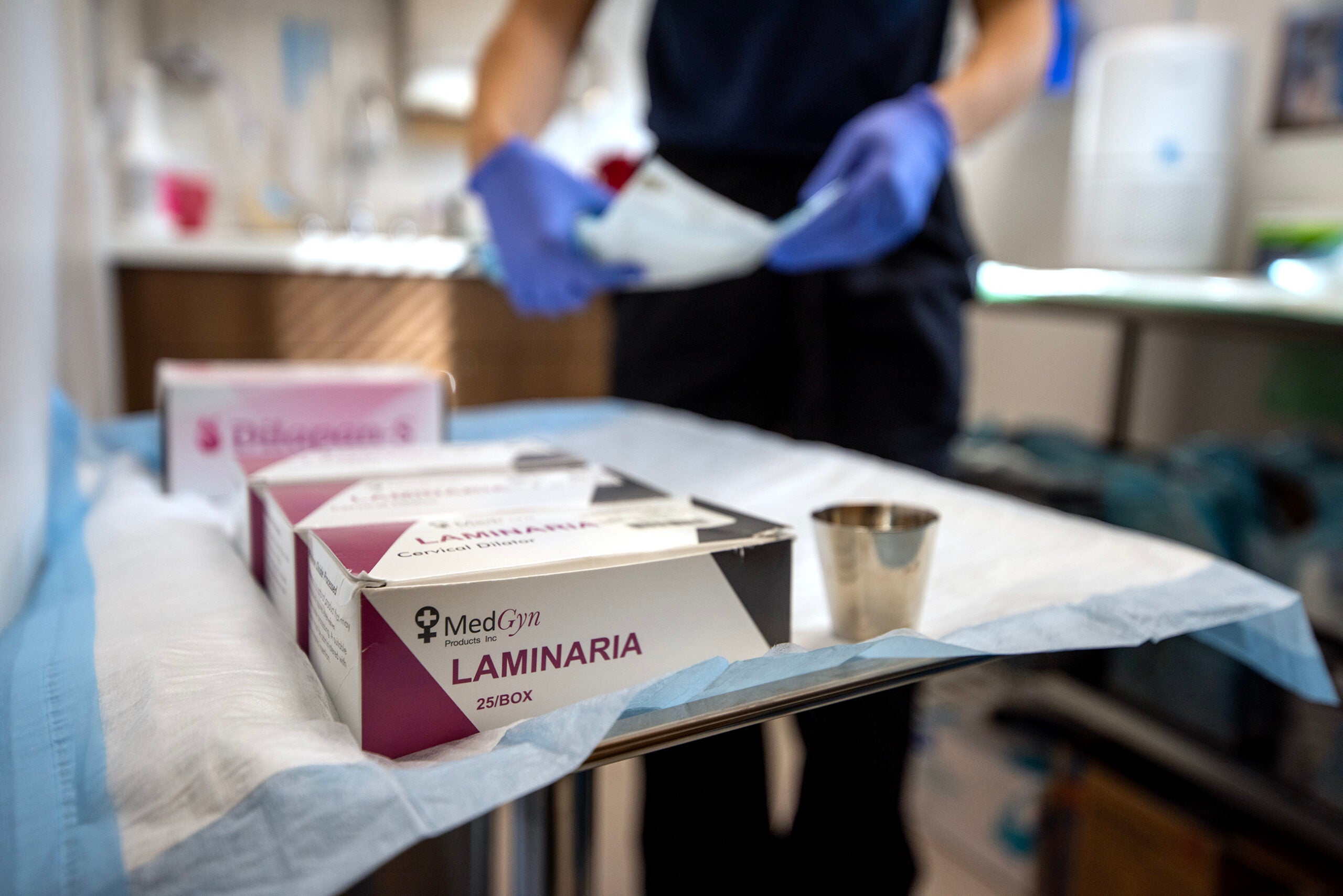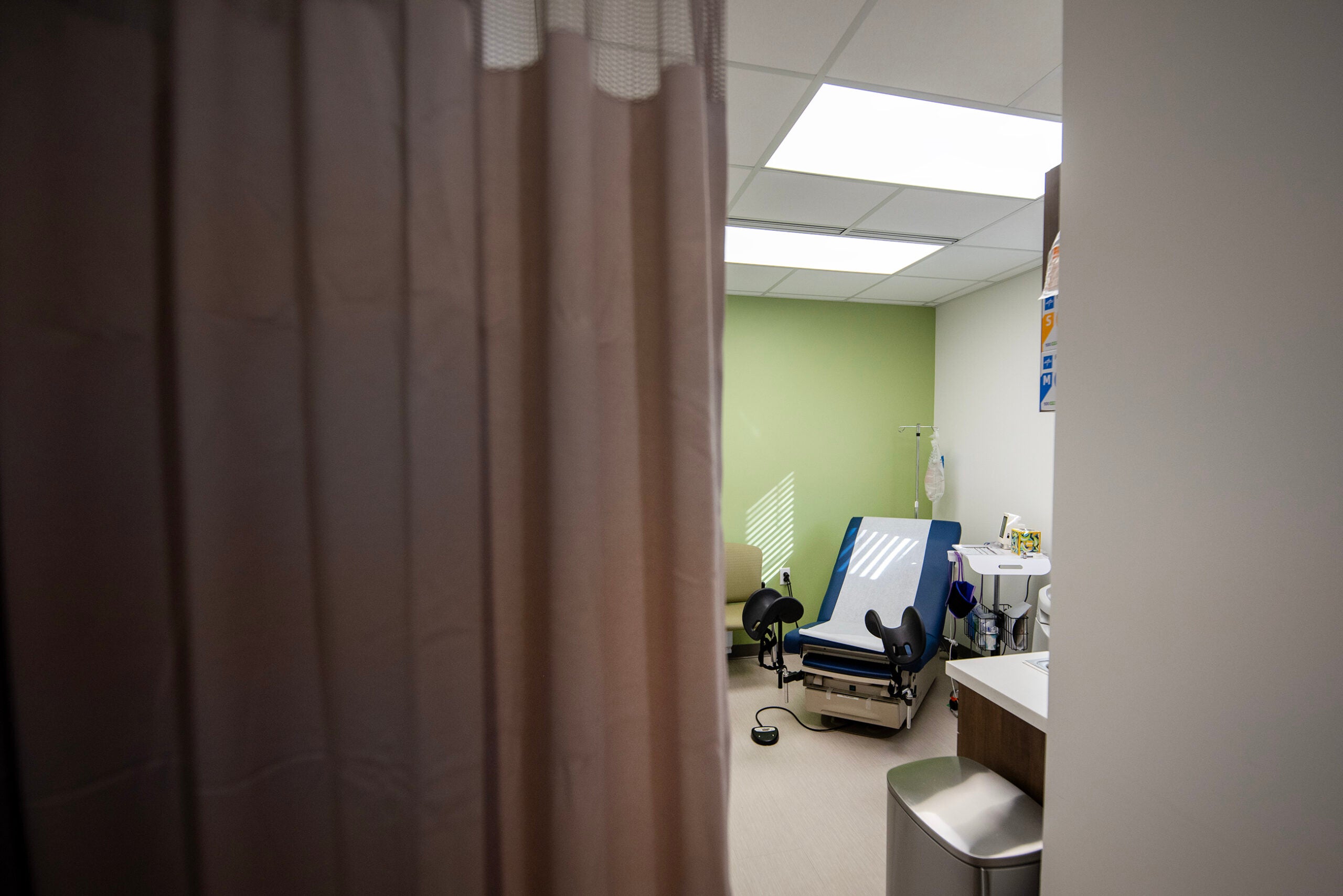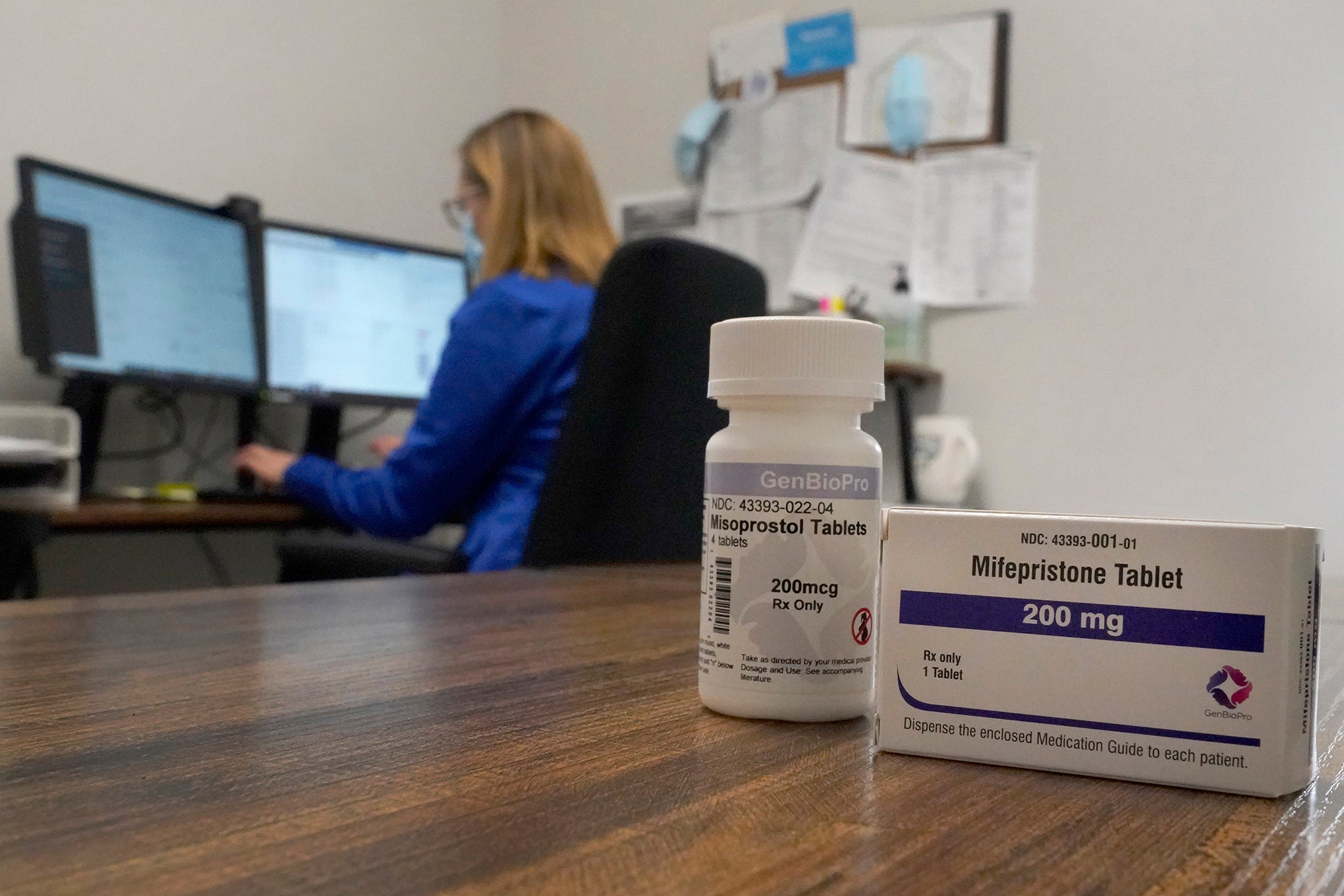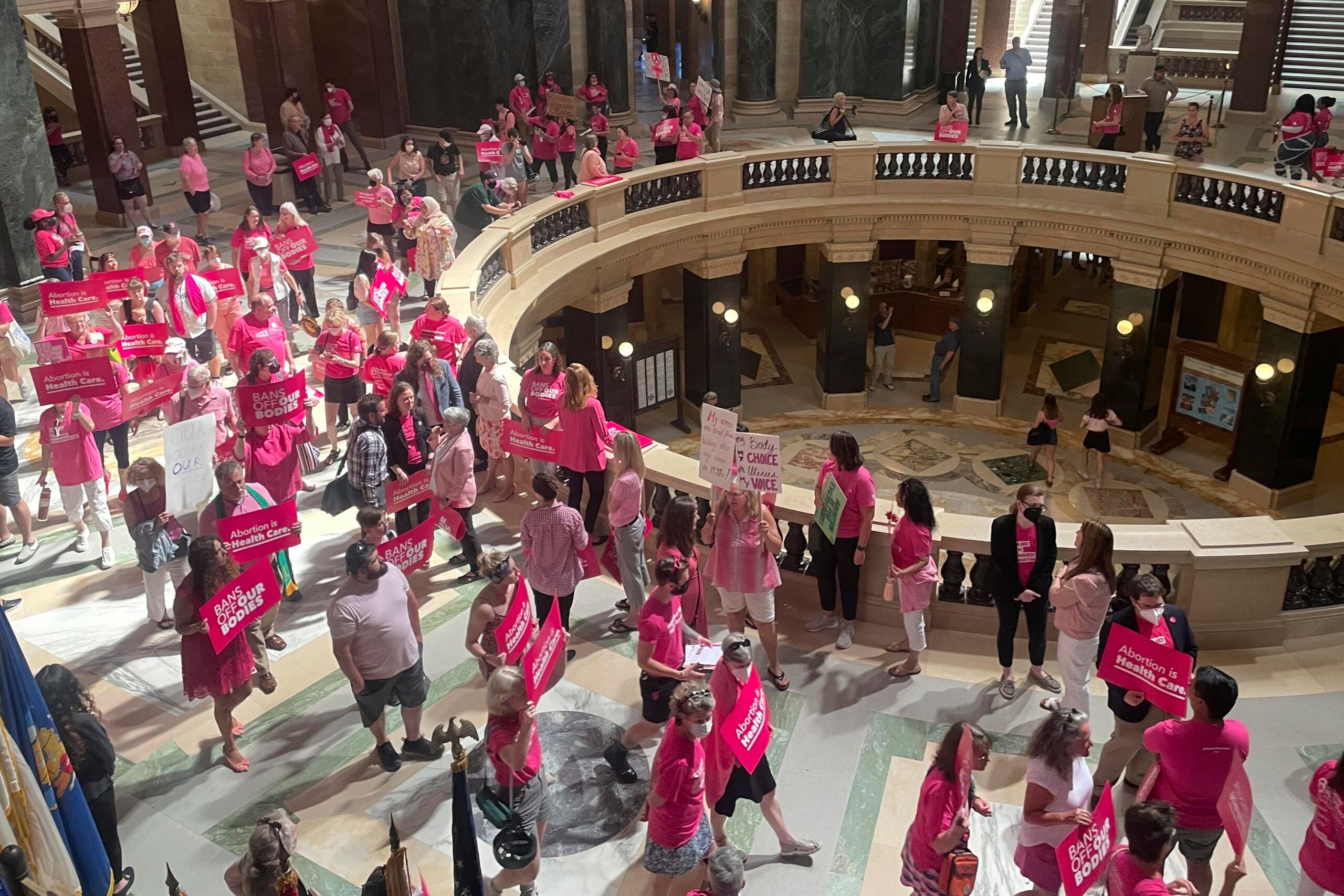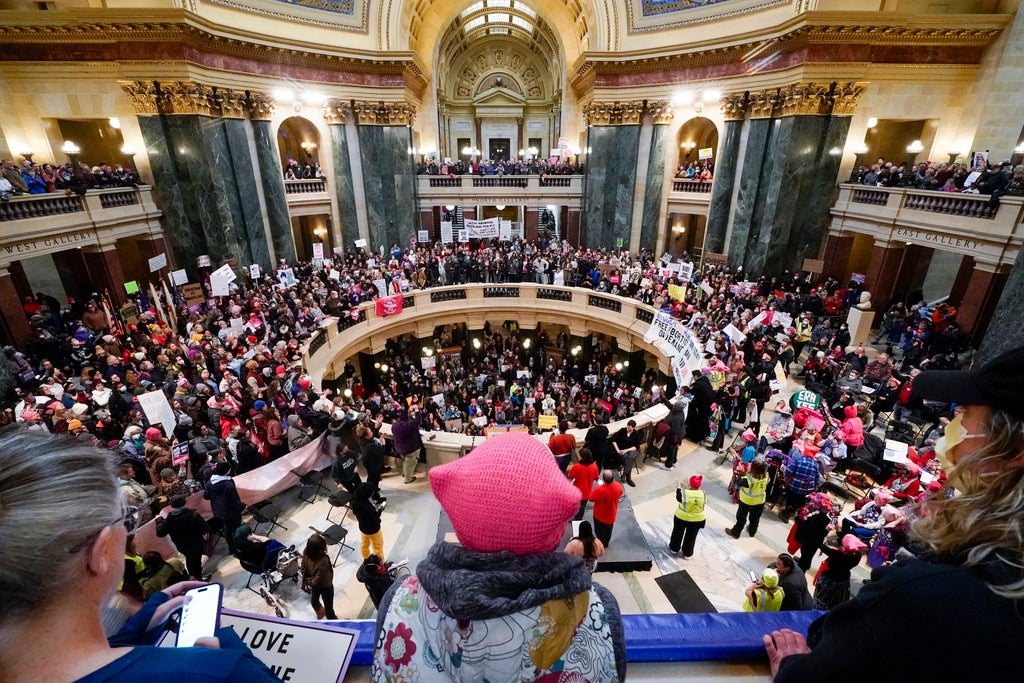U.S. Sen. Ron Johnson says he supports exceptions to Wisconsin’s 1849 abortion ban, but changes should happen through a “direct referendum” approved by voters. Such a move is impossible without action from the state’s Republican-controlled Legislature, and anti-abortion groups say they’d prefer the state’s ban to be tightened rather than “watered down.”
Johnson told the Milwaukee Journal Sentinel this week he would like to see Wisconsin’s 1849 law banning nearly all abortions updated to include exceptions for rape and incest “at minimum.”
“My recommendation would be a referendum,” Johnson told the newspaper. “But because this debate has been delayed for 50 years, people really don’t have, I think, the information they need to decide that question: At what point does society have the responsibility to protect life in the womb? Balancing the rights of a mother with the rights of an unborn child.”
News with a little more humanity
WPR’s “Wisconsin Today” newsletter keeps you connected to the state you love without feeling overwhelmed. No paywall. No agenda. No corporate filter.
Johnson said citizens in the state should be polled on the matter “and I’d rather do it through a direct referendum.”
Changes to state law cannot happen through statewide referendums unless state lawmakers were to approve a proposed change to the Wisconsin Constitution in two consecutive legislative sessions, and then a majority of voters were to vote to ratify the proposed amendment. Since legislative sessions last two years, the process of amending the Constitution to allow a direct referendum in Wisconsin would likely take years to accomplish.
In May, GOP Assembly Speaker Robin Vos, R-Rochester, said he favors changing the 1849 ban to include exceptions for rape and incest. But after the U.S. Supreme Court overturned Roe v. Wade and the state’s sweeping ban went into effect, Vos said such a change was “unlikely.” This means the changes and procedure suggested by Johnson are unlikely to happen.
Communications staff with Johnson’s Senate office and campaign did not respond to requests for comment.
In an emailed statement, Lt. Gov. Mandela Barnes, the Democrat who is running to unseat Johnson, said the senator’s comments about adding rape and incest exceptions to Wisconsin’s law contradict the “extreme positions on reproductive freedom (Johnson) has held for over a decade.”
“(Johnson) can’t hide the fact that he has supported an abortion ban with no exceptions for rape and incest and has cosponsored every version of Sen. Lindsey Graham’s federal abortion ban,” said Barnes. “It’s time for him to be honest with Wisconsin voters about his extreme beliefs.”
Johnson was one of more than 200 members of Congress to sign on to an amicus brief in support of Mississippi’s Dobbs v. Jackson Women’s Health case, which led to the U.S. Supreme Court’s decision overturning Roe v. Wade federal abortion protections.
After Graham, a Republican from South Carolina, introduced legislation aimed at creating a national abortion ban after 15 weeks of pregnancy, Johnson said the issue should be decided at the state level. But Johnson previously supported similar legislation from Graham that would nationally ban abortions 20 weeks after fertilization.
Johnson also co-sponsored a “Life at Conception Act” bill in 2011 that would have amended the U.S. Constitution to extend equal protection rights to “the moment of fertilization.”
The GOP senator’s support of rape and incest exceptions to Wisconsin’s abortion ban is not sitting well with some anti-abortion groups in the state.
“We strongly oppose what Sen. Johnson is suggesting on that change to the 1849 ban, and anyone else who is trying to push that,” Pro-Life Wisconsin state legislative director Matt Sande told Wisconsin Public Radio. “And if there was a move in the Legislature to amend the 1849 ban to water it down to include the rape and incest exceptions, I think there would be stiff resistance from a lot of the Republican caucus members to doing that.”
Instead, Pro-Life Wisconsin and Wisconsin Family Action would like to see the 1849 law tightened to remove an exception that allows abortions when deemed “necessary, or is advised by two other physicians as necessary, to save the life of the mother.”
Wisconsin Family Action President Julaine Appling told WPR “in a perfect world, we do not support exceptions of any sort.”
“We don’t believe at this point, with the medical technology that we have, that it is either/or,” Appling said. “It’s both/and. Both the mother and the baby can be saved. And we would prefer that the language be that we give care for both the mother and the baby in a medical emergency.”
Still, Appling said the group did support state legislation banning abortions after 20 weeks of pregnancy during former Republican Gov. Scott Walker’s administration.
“We worked like crazy to get the authors to take the exceptions out and they would not do it,” Appling said. “So, we supported the bill. And I always said we support the bill about 95 percent with the caveat that we don’t believe the exceptions are necessary or wise.”
Abortion rights supporters like Planned Parenthood Advocates of Wisconsin are also put off by Johnson’s pitch to change the state’s abortion ban through referendum.
Mike Murray, the group’s chief external strategy officer, said Johnson “is talking about an alternative reality right now” that dismisses hardships faced by women seeking access to abortion care, in part because of his support for conservative U.S. Supreme Court justices who helped overturn Roe v. Wade this year.
“This is absolutely a diversion for him to not want to be dealing with a situation he has helped create and a situation that is causing harm to real people and a situation that is very unpopular with voters,” Murray said.
A Marquette University Law School poll released Wednesday found that 63 percent of respondents opposed the decision to overturn Roe and just 30 percent favored the move.
The poll also found that strong majorities of Wisconsinites identifying as Republicans, Democrats and independents favored adding exceptions for rape and incest to the state’s 1849 abortion ban.
Wisconsin Public Radio, © Copyright 2025, Board of Regents of the University of Wisconsin System and Wisconsin Educational Communications Board.

